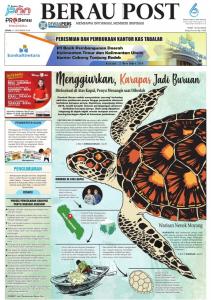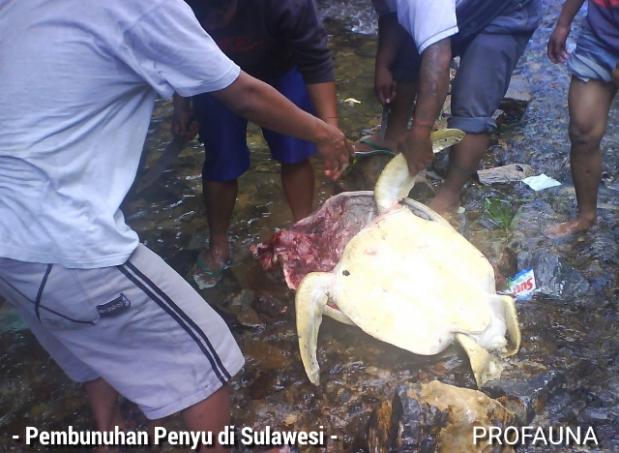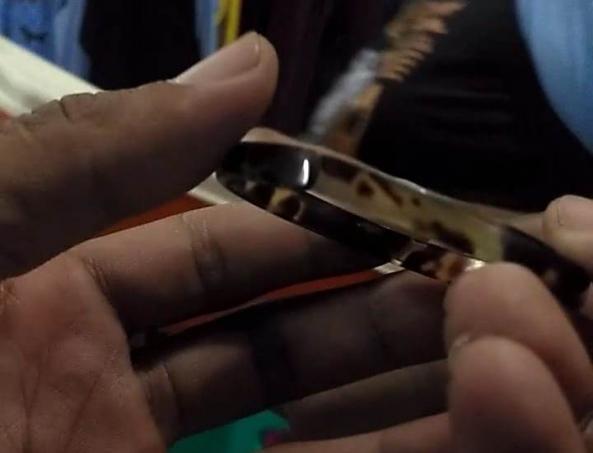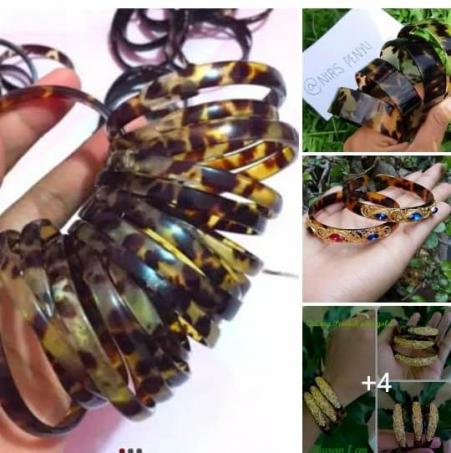UNCOVERING SEA TURTLE POACHING IN BERAU, EAST KALIMANTAN, WARNING: GRAPHIC CONTENT
JawaPos.com - The government of Berau, East Kalimantan has declared war against sea turtle poaching, including trade of souvenirs made from sea turtle shell. In 2018, however, these practices were still widely found either in tourist objects or subversively in the city.
Berau Post
ERETMOCHELYS IMBRICATA, known also as the Hawksbill Turtle, is on the global red list of endangered animals. Indonesian government has also protects it under Law no.5 of 1990 concerning the Conservation of Living Natural Resource and Its Ecosystem as well as Government Regulation no.7 of 1999 on the Preservation of Wildlife Species.
 In Berau, East Kalimantan, measures have been taken to preserve this marine reptile who lays egg only once every 2-8 years, including giving education to people up to giving penalties to illegal dealers. Sadly, all the efforts have not succeeded in stopping crimes against sea turtles. Fishermen still catches sea turtles and illegally sell the products.
In Berau, East Kalimantan, measures have been taken to preserve this marine reptile who lays egg only once every 2-8 years, including giving education to people up to giving penalties to illegal dealers. Sadly, all the efforts have not succeeded in stopping crimes against sea turtles. Fishermen still catches sea turtles and illegally sell the products.
Pulau Derawan district and Sanggam Adji Dilayas market are the hotspot for sea turtle products. At least there were 8 findings of sea turtle shell-based souvenirs in 2018 only, as found by PROFAUNA Berau.
These illicit practices might just be the main reason why tourists cannot find sea turtles on the beaches anymore, especially in Derawan, one of the most famous nesting sites for sea turtles in the 90s.
Based on collected information, sea turtle poaching has been going on for decades. Not only for the eggs, poachers also go for the shell. The shell is used to create costly accessories like rings and bracelets, which people often buy as souvenirs.
Berau Post (part of Jawa Pos Group) is tracing the poaching network by fishermen, and also how the shells are made into accessories. It was proven to be a rather arduous endeavor, despite our journalists' concealed identity, because most fishermen and souvenir vendors chose not to talk.
"Today (Thursday, 20/12) some shop owners are still afraid to sell souvenirs made from sea turtle shell. Maybe next week they'll start again," said one souvenir sellers in Derawan. The team then continued visiting other shops to collect more information on sea turtle shell-based souvenirs, but the owners refused to talk.
Just when the team decided to return to the motel, they met a motel worker who knows about sea turtle poaching. In fact, he used to catch sea turtles in Derawan Islands! Boy, not his real name, admitted that sea turtle poaching is a big business in Derawan. He knows some fishermen who still actively catch sea turtles for the shell.
He thinks that sea turtle shell products has high value and are much sought by tourists visiting Derawan. It is easy to catch sea turtle once the fishermen figure out their favorite feeding spots, such as in the waters around Panjang Island. From his personal experience, he can get up to IDR 3 million from selling sea turtle shells, which is worth IDR 1.5 million/kilogram.
Sometimes, added the 36 year old man, he feels bad for doing such horrible cruelty to sea turtles because to get the shells he uses unimaginable methods. Most sea turtles are being executed right on the fishing boat. Sea turtles are turned upside down to prevent them from moving, and then the fishermen would pour boiling water throughout the turtle's lower body and back so that the shells will fall out easier.
Another method frequently used by fishermen is burning the sea turtles using a torch. When the shells heat up and the body scalds, the fishermen will gouge out the shells using a small stick. All these brutalities are done while the sea turtles are alive! When the poachers are done, they simply throw the turtles back into the waters and left them to die.
"When we pick the shells out from their bodies, they (the turtles) will cry. Maybe it's the heat or pain they can't handle. When we throw them back into the water, some will swim away fast, but some will swim around in place. They must be suffering," added Boy.
Yet, his empathy upon seeing the sea turtles' suffering is no match to the good amount of money he can get from collecting sea turtle shells. "What can I say? Life is hard in here so we would do just anything to make money."
Why did he stop?
Boy told the team that he quit the illegal business a year and half ago because he was afraid of the legal consequences.
"Ever since the campaign against the trade sea turtle products blew up in Berau, I started to rethink my action and then decided to quit," said Boy.
From the conversation, our team also got additional information about the names of vendors who still collect sea turtle shells from fishermen, and some other leads to follow.
Among the mentioned names was Emil (not his real name). When Berau Post's team visited his home, he suspected the team to be intels from the police or army. But after a while, he began to open up. He admitted that he has stopped selling sea turtle shell products, but only temporarily. He planned to start again in the holiday season, when tourists come to Derawan Islands and bring big profit for the illegal business.
With only IDR 1-3 million to buy sea turtle shell, Emil and other sellers could gain a lot of money, although the net profit is not actually very big.
"We know it is illegal, but we keep on making souvenirs from sea turtle shells because tourists love it," said Emil.
He explained that a whole sea turtle shell consists of 13 sections. Each section can be made into up to 15 souvenirs which can be sold for IDR 15,000 (rings) up to IDR 30,000 (bracelets). This means that one whole sea turtle shell can be crafted into averagely 195 accessories, and if they are sold for around IDR 20,000 then Emil can get IDR 3.9 million.
"It is rather quick money because tourists buy in bulk for souvenirs, in the holiday season I can sell up to IDR 20 million," claimed Emil.
Emil then elaborate about the labor it takes to create the accessories. There are steps to follow from cutting the shells into smaller pieces, grinding them to get polished look and pattern, and finishing the products using sandpaper.
"It involved great labor and a lengthy process, yes. But the profit is very promising," claimed Emil.
The prospect of big profit is enough motivation for these men to continue their illegal business despite the government's prohibition. It only makes them even more careful. "Like these days, we choose to stop selling due to government's intensive inspections," concluded him.
Source: JawaPos.com. This article has been published in Jawa Pos paper on 31 December 2018 in Bahasa Indonesia.



